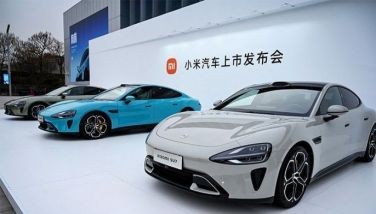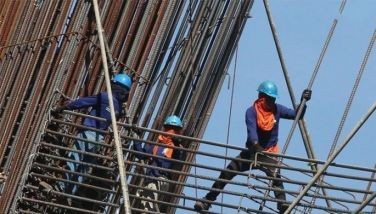5 invaluable lessons from Anwar Ibrahim

From solitary confinement to keynote speaker. Anwar Ibrahim, in his first speaking engagement since his release from prison, addressed a ballroom filled with CEOs at the Makati Shangri-La.
The Management Association of the Philippines’ 2018 CEO Conference bannered a theme that appears to contrast with his persona – technology; and at the same time a theme that seems to represent his persona – disruptive. It is as if MAP itself plucked him from prison as the unusual suspect to deliver gems of lessons to a sophisticated crowd of Philippine business leaders.
The MAP-PwC CEO Survey 2018 has gathered 68 percent of CEOs who say they will change their business models to adapt, while Anwar stresses the importance of unwavering principles.
45 percent of the CEOs are now keen to invest in startups, and 79 percent intend to harness disruptions using partnerships; while Anwar reminds us not to overlook our internal partners: our employees.
89 percent of our CEOs remain confident that their revenue growth prospects over the next 12 months will even be better than industry; while Anwar says that at the height of economic flourish, do not neglect the poor.
We do not get sage insights from probably any of the world’s leaders nowadays, but Anwar, in his visit to the Philippines, gave generously like water to thirsty, lost travellers in a desert. Let me share with you at least five invaluable lessons from Anwar:
1. “When you are the leader, you are not free.”
A president can use the mandate of the people by winning the elections, to justify (or make an excuse) that whatever he does is supported by the people.
Almost stunning for Anwar to point out that while a leader should ensure freedom, he himself is not of a free man. He must do the right things, and not only those that he wants. A president can be an elitist or a populist, but he must always be bound by the rule of law.
2. “The only wisdom we can acquire is humility.”
Politics is the profession with the lowest morality, says Anwar. Many politicians talk about values and principles when they have none, and they have become very cynical.
Have you done enough for your family? Then have you done enough for our people? Humility is realizing that we have not given enough, that we have not done enough.
For this man who shared that he memorized Rizal’s Mi Ultimo Adios, he must have realized that Rizal, even in death, still felt he had not done enough, and wished even for the ashes of his remains to have some useful purpose.
3. Forgive, but for the right reason.
If Filipinos are quick to forgive and forget, Anwar unknowingly offered a better norm – we must forgive but for the right reasons, and subject to conditions.
He said he forgave Mahathir, the man who caused him great suffering from concocted charges, leading to his solitary incarceration for many years. He is even now in the same party with Mahathir, with a deal to succeed Mahathir as prime minister after two years. Political expediency, yes, but Anwar believes Mahathir is now committed to democratic reforms, and at the last stage of his life is committed to the “save Malaysia” movement against corruption.
For ousted prime minister Najib Razak (who is charged with ransacking Malaysia’s investment fund to the tune of more than $4 billion, making it their country’s largest known corruption heist), he said he can forgive Najib for stealing, but he must return the billions that were stolen.
4. “We cannot share poverty, but we can share wealth.”
For a developing economy, investments are very critical; you must facilitate investments to build business. Everybody should be welcome in Malaysia, so long as they follow the rules. His position is not to be too restrictive on business because it builds wealth. This is his position because “we cannot share poverty but we can share wealth”.
This resonates with what we should do with our own investment policies on restrictive foreign equity limitations and with our review of committed incentives for preferred areas of investments.
5. “Not just democracy, but democratic accountability.”
Anwar says businesses flourish in a democracy, but they cannot be very profitable while having very little concern for those who are marginalized. And those in the private sector should not give bribes to government to defeat corruption.
Those governed in a democracy should make their government accountable. For the Philippines, this means do not forget that what has been stolen has not yet been returned; this means having the courage to demand the rule of law and due process for everybody; this means we should not be willing victims by turning a blind eye or engaging in a code of silence. Democracy is a gift, and an obligation.
* * *
Alexander B. Cabrera is the chairman and senior partner of Isla Lipana & Co./PwC Philippines. He is the chairman of the Tax Committee, and the vice chairman of EMERGE (Educated Marginalized Entrepreneurs Resource Generation) program, of the Management Association of the Philippines (MAP). Email your comments and questions to [email protected]. This content is for general information purposes only, and should not be used as a substitute for consultation with professional advisors.
- Latest
- Trending































